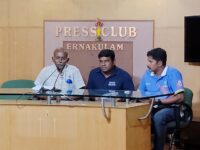35 per cent of Dharavi locals were reluctant to get Covid jab: Study

A study has revealed that 35 per cent of Dharavi residents, including those who don’t reside in slums, were reluctant to get the jab during the Covid-19 pandemic. It links hesitancy with the level of awareness among the people.
Mumbai was one of the worst-affected cities during the pandemic. So far, 11,55,329 people have tested positive for the coronavirus out of which 19,747 lost their lives. Though in the initial days, citizens eagerly awaited a vaccine that would safeguard their health, many were not ready to take it.
The cross-sectional comparative study was conducted by the Indian Institute of Public Health, Gandhinagar, Gujarat, along with the BMC’s public health department to determine vaccine-related awareness and acceptance among the Dharavi population of Mumbai with regard to the Covid-19 vaccine.
A total of 384 Dharavi residents above the age of 18 were surveyed; of them, 192 reside in slums while 192 were from a non-slum area. Responses to the questionnaire were done on the field itself via a house-to-house survey.
Data on socio-demographic characteristics, Covid-19 vaccine awareness, acceptance and non-acceptance was collected. The study reveals that 227 participants (59.1 per cent) had poor or very poor awareness while 157 (40.9 per cent) had average or above-average awareness about Covid-19 vaccines.
Also Read: Mumbai: Covid-19 war rooms get new role
Of the slum and non-slum residents, 74 (39.5 per cent) and 60 (31.2 per cent) respectively were not willing to get vaccinated and the difference is not statistically significant. Overall, 250 participants (65.1 per cent) displayed vaccine acceptance while 134 (34.9 per cent) showed vaccine hesitancy.
According to researchers, the proportion of awareness and acceptance of the Covid-19 vaccine varies and interlinks with socio-demographic characteristics such as gender, educational level, religion and area of residency of the study population. Covid-19 vaccine acceptance was found to have a significant association with awareness.
A BMC official said, on the condition of anonymity, “For rapid mass vaccination, vaccine acceptance must be widespread. This acceptance necessitates more than just providing safe and efficient immunisations. The level of awareness and acceptance of the Covid-19 vaccine varies based on sociodemographic factors.
Covid-19 vaccine awareness was found to have a significant association with its acceptance. So, strong, comprehensive and strategic Covid-19 vaccination awareness campaigns are required. This study will help us to be better prepared for future pandemics and public health crises.” The survey was conducted from April 2 to 11, 2021, and was published in the journal GSC Advanced Research and Reviews in February.
384
No of citizens who took party in the survey

Atul Tiwari is a seasoned journalist at Mumbai Times, specializing in city news, culture, and human-interest stories. With a knack for uncovering compelling narratives, Atul brings Mumbai’s vibrant spirit to life through his writing.





